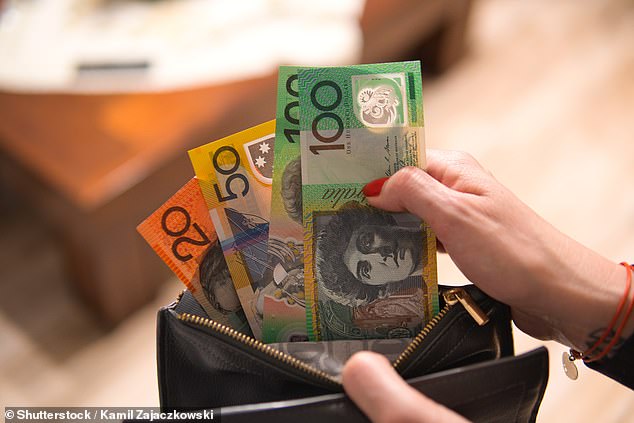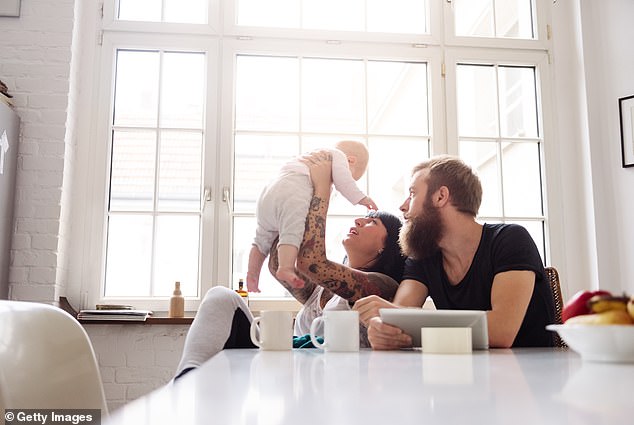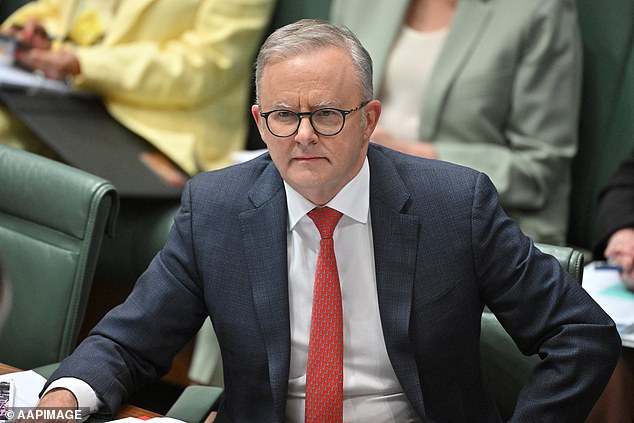Table of Contents
Australians will soon receive a raft of cash boosts after Anthony Albanese vowed to make cost-of-living relief his number one priority.
The revised Stage Three tax cuts, a $300 energy rebate for households and a $325 rebate for small businesses will take effect on July 1.
Fathers will be entitled to an additional two weeks of paid parental leave and the minimum and award wage will increase by 3.75 per cent on the same date.
Social assistance payments for almost 2.4 million households and pensioners will increase in line with quarterly indexation changes to income thresholds.
Australia’s superannuation guarantee will also increase by 0.5 per cent, to a total of 11.5 per cent, before rising another 0.5 per cent to 12 per cent in 2024.
In a speech to the caucus on Tuesday, Albanese told Labor MPs that July 1 was an important date to campaign in their electorates.
He told MPs it was “very rare” to have a day like July 1, when five cost-of-living measures come into force at once. reports the AFR.
Australians will receive a series of cash boosts just days after Anthony Albanese (pictured) promised to make the cost of living his government’s number one priority.
Everything you need to know about the changes that come into effect on July 1
Tax cuts in the third stage
Under the updated stage three tax cuts, households can expect tax savings ranging from $350 to $4,500 a year, depending on their income level.
The tax rate for people earning between $19,000 and $45,000 has been reduced from 19 percent to 16 percent.
That will give those earning $45,000 a year an additional $805 a year.
Energy bill relief
All households will see a $300 credit automatically applied to their electricity bills, while one million small businesses will also receive $325 off their bills.
Energy companies will apply $75 credits to each quarterly energy bill under the rebate scheme.
Boost to the minimum wage
Following a recent decision by the Fair Work Commission, minimum wage and award wages will increase by 3.75 per cent from 1 July.
Based on a full-time 38-hour workweek, the national minimum wage will increase from $23.23 per hour to $24.10 per hour.
This translates to an increase from $882.80 per week to $915.91 per week, giving minimum wage Australians $33.10 more.

On July 1, revised Stage Three tax cuts and the $300 energy rebate for households and $325 rebate for small businesses will take effect (file image)
More paid parental leave
Currently, eligible parents can get up to 100 days of paid leave or 20 weeks, based on a five-day workweek.
Starting July 1, parents will be entitled to 110 days, or 22 weeks, based on a five-day work week.
In July 2025, this will increase to 120 days, or 24 weeks, and then to 130 days, or 26 weeks, in July 2026.
Centrelink payments
Quarterly indexation changes to income thresholds will take effect from July 1, to ensure government support keeps pace with inflation.
The extensions to the current income and asset limits mean payments will increase for five schemes, including Family Tax Benefit (Parts A and B), Multiple Birth Benefit, Newborn Supplement, Stillbirth Payment and Essential Medical Equipment Payment.
For families with children under age 13 who receive the Part A family tax benefit, the maximum biweekly payments will increase from $8.68 to $222.04.
Households with children 13 and older could receive a maximum biweekly payment of $288.82, an increase of $11.34.
The supplement for Family Tax Benefit Part A will also increase from $36.50 to $916.15, and from $18.25 to $448.95 for households with Family Tax Benefit Part B payments.

From 1 July, fathers will be entitled to 110 days, or 22 weeks, based on a five-day work week. Previously, fathers were entitled to 20 weeks of paid leave (file image)
The indexation changes will also increase the income thresholds for paying parental leave.
Income eligibility requirements will also be extended for people receiving the Single Parenting Payment, the Age Pension, the Disability Support Pension and the Carer’s Payment.
Asset limits will also be increased for people receiving Job Seeker Payment, Special Benefit, ABSTUDY, Austudy, Youth Allowance and Parenting Payment.
Increase in passport prices
The cost of an adult passport valid for 10 years will rise from $346 to $398, a 15 per cent increase, as Labor will introduce a new Fast Track passport service from 1 July.
Eligible customers residing in Australia will be guaranteed that their passport application will be processed within 5 business days.
Fast Track service costs an additional $100 on top of the passport fee.


